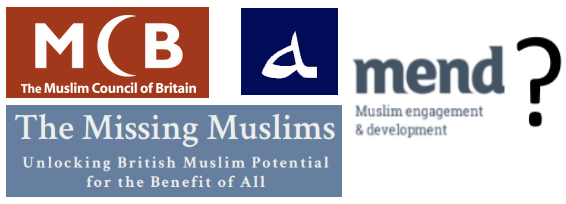During the period of colonial devastation, there was an extensive use of PR to spin harmful schemes and sell them to Muslims with objectives which ultimately served colonial ends.
Tag Archives: Nazir Afzal
The “Independent and Impartial” Thought-Policing Counter Extremism Commission

Twitter talk and feverish Facebook frenzy over the newly announced Commission for Counter Extremism (CCE) has continued for the past few days, but perhaps disproportionately for the wrong reasons. The government’s announcement of the Commission came alongside the announcement of the lead commissioner Sara Khan of Inspire, a self-styled feminist who counters “extremism” has triggered vociferous responses in the media. MEND led a petition against her appointment and whilst it opens with a question as to why the Commission is necessary, it goes onto attack Khan on the condition of it existing, rendering the opening statement somewhat incidental. Mend CEO Shazad Amin also centred on Khan, reinforcing this perception.
There are certainly problems with Khan (these will be elaborated upon in a subsequent, detailed piece), however, they are an extension of far more important concerns that need to be raised.
Fiyaz Mughal and Tell MAMA: Purveyors of Structural Islamophobia

There is an entire industry built on the back of Muslim demonisation. This “counter-extremism” industry utilises the rhetoric of preventing terrorism, but perpetuates structural terrorism against the Muslim minority through policies and rhetoric which have the cumulative effect of producing a “suspect community”. This reinforces Islamophobic stereotypes that Muslims are inherently, potentially violent unless “civilised” (assimilated) into “British values” as defined for everyone by neocons. Whether victims or criminals, it is their culture and religion which is to blame. It is a demonising narrative that has recently subsumed into its toxic discourse the attacks Muslims are currently enduring.
Muslims have been experiencing an increased intensity of anti-Muslim hate over the years and through various rhetorical and physical transformations, from the Paki-bashing by skin-heads, BNP, EDL and now Britain First and National Action, to the elderly man/woman walking across the road whilst angrily pointing a finger at a veil mumbling – like Sayeeda Warsi – that it has no place here. In recent days, it has been reported that hate crime targeting masaajid more than doubled in the last year.
An Alternative to PREVENT? A Pre-Crime Perspective

PREVENT continues to attract significant criticism. A northern-based human rights organisation – JUST Yorkshire – is to launch a report supported by the Open Foundation on the 29th of August. It concludes that PREVENT is built on a “foundation of Islamophobia and racism”, with a “reliance on stereotypes”, contributing to a “climate of fear”, self-censorship and discrimination. These are findings which are have been repeated through the years by, academics, organisations like CAGE and SACC, and reported by teaching and student unions. In this piece, contrary to the PREVENT propaganda pumped by the Home Office, it will be shown that these are natural outcomes based on inhering conceptual problems.
I found the title of this soon-to-be published report particularly interesting however. The title “Rethinking PREVENT: A Case for an Alternative Approach” plays on the trends that see efforts to develop “an alternative to PREVENT”, which is community-owned. It is my assertion that there is no “alternative approach” to PREVENT, be it ostensibly rooted in the community, civil society or the state. Further, it is not PREVENT that requires a rethink because it is symptom of a much bigger problem. It is the injection of “pre-crime” into laws, policies and the criminal justice system as a whole. It is the encroaching sceptre of pre-crime that is producing new risks and threats across society that not only needs to be re-thought, but arrested and reversed – de-precriminalised if you will. And it is in this vain that I endeavour to critique the misguided call for a “community-based” response to the state-defined threat of terrorism.
Pre-crime: Countering Terrorism/Extremism with Muslim Communities?

Given the toxicity of the PREVENT label, the Muslim minority is all too familiar with its problems. Its name results in an anxiety which now simply cannot be dismissed. As the highly problematic report “The Missing Muslims” published by Citizens UK recognised, the “Prevent Strategy on Muslim communities came up in most of the hearings across the country”.[1] To deal with this breakdown, there is now a reversion to a “community-based” approach to tackling extremism and terrorism.
The “community response to terrorism” approach seeks to mask the issue that “buy-in” and trust of the community is absent and therefore the policy is not being co-opted by the community. The solution therefore operates on the assumption that PREVENT, or more accurately, a pre-criminal intervention is not necessarily the problem, and where there are problems, these are simply implementation detail which can be rectified. This is further supplemented by a co-existing effort to produce a response developed by the community in the hope that PREVENT would be rendered obsolete. Both however, posit the community and its exploitation central to the promulgation of pre-crime interventionism.
In this piece, I intend to outline a brief history of this resurgent “community-driven response” trend and highlight some of the organisations that seem to be pursuing this course of action.
